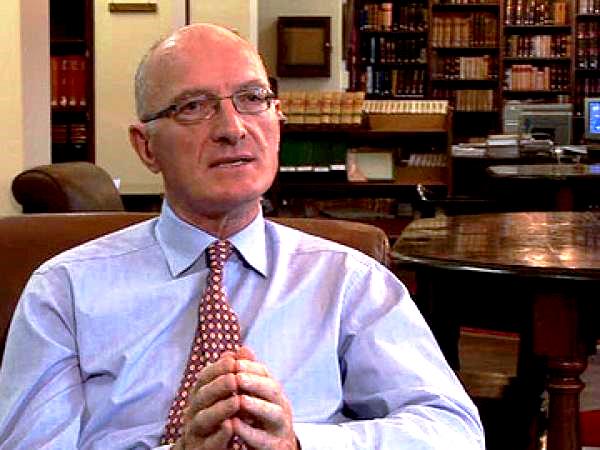Medicine patent system must be fixed
Current system is not developing enough of the drugs we need
The following is the text of a speech delivered by Justice Edwin Cameron on Wednesday in Johannesburg to the United Nation’s Secretary General’s High Level Panel on Access to Medicines.
The campaign by the Treatment Action Campaign from 1998 to 2002/3 succeeded in making life-saving medicines accessible to the health systems of many developing countries. This meant, quite literally, that millions of lives have been saved, and inexpressible suffering avoided.
The period of intense global focus on antiretroviral (ARV) treatment has passed – yet the fundamental barriers to access to medicine remain.
The question now, and for this meeting, is how we address these fundamental barriers.
From my viewpoint as a lawyer, and one who owes his life to ARV treatment, the main problem is that the patent system is unacceptably skewed. It heavily favours corporations and the pharmaceutical industry, instead of encouraging increased access.
The result it that essential medicines too often remain prohibitively expensive.
And the current structure of the patent system also insufficiently achieves what is supposed to be its main public benefit: investment in research and development of new medicines for diseases that matter to most of the world’s people.
For instance, we need new medicines for TB. We need fresh, responsive and inventive antibiotics. We desperately need medicines for what the WHO describes as the neglected diseases – communicable diseases that are prevalent in tropical and sub-tropical conditions. They mainly affect poor people, those living without adequate sanitation and in close contact with infectious vectors and domestic animals and livestock.
Innovative ideas have been proposed. These would make the medicine development system fairer – but would still provide ample incentives and profit for pharmaceutical companies that innovate.
At least one proposal of this kind has been presented to this meeting, by Marcus Low of the Treatment Action Campaign. His suggestion, broadly, is that we should make continuation of a patent dependent on a patent-holder’s investment in R&D (which currently is quite low).
Professor Thomas Pogge, of Yale, has proposed the creation of a global Health Impact Fund. This would replace the present patent system, which is rooted in the exclusivity of private property. Instead, it would generously reward pharmaceutical innovators based on the impact of their innovations. Those who most greatly affect the largest number of people with their inventions would receive the most lavish rewards. The incentivisation benefits of Prof Pogge’s ideas are evident.
It is time these modifications to the patent system are given serious, practical consideration. It is also time that they receive emphatic public support. And I suggest that it form part of the task of the high-level panel.
At a minimum, the period of exclusivity associated with patents must be re-examined; generic access to essential drugs must be made easier; and much more pressure must be brought to bear on companies to invest more in research and development (R&D).
From my experience as one who lived through and nearly died in the AIDS epidemic, but who has enjoyed vigorous life because of pharmaceutical innovation, I wish to end with a concluding thought – on moral outrage.
Most of the major moral outrages of history have seemed insurmountable. Slavery, European colonialism, racism, gender subordination, female genital mutilation. Many of these continue, outrageously.
One such outrage was the notion that some 30 million black Africans should be left to die of AIDS because they could not afford to pay the exorbitant prices the patent holders of the ARV medicines that could save their lives were demanding.
Think back to 1996, when it was first announced that ARVs were extraordinarily effective in treating AIDS. No one imagined then that the shape of the moral debate would shift so radically that it would come to condemn that notion as repugnant and unacceptable. No one imagined that the entitlement to ARV treatment would encompass and embrace the world’s poorest and most marginalised people with AIDS.
It was the moral outrage of activists who changed the structure and content of the debate – its “parameters”. They conveyed to governments, to corporate decision-makers and to the public that it was morally repulsive to leave poor people to die even though medication was available that could prolong their lives and relieve their suffering.
That is part of the task of this important process – to shift the parameters of moral debate on access to medicines; to engender a sense of moral outrage about the present system of patent protection.
I have no doubt it will succeed in doing so. Many lessons from the ARV debate are resonantly available.
The main methods, as with all shifts in public thinking (slavery, racism, homophobia) are: impeccable evidence; sustained, remorseless, principled engagement; unceasing challenge to unexamined preconceptions; persuasion of the better alternative.
That is a large and important task. It is one we must all undertake if we are to rid our world of a major moral blemish.
Views expressed are not necessarily GroundUp’s.
Next: Gugulethu school marches against crime
Previous: Wolwerivier shows how far Cape Town is from integration
© 2016 GroundUp. 
This article is licensed under a Creative Commons Attribution-NoDerivatives 4.0 International License.



